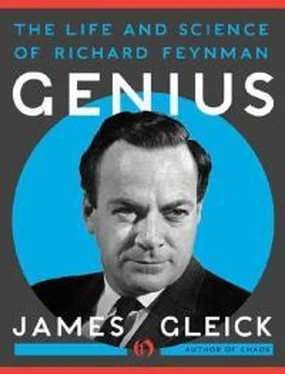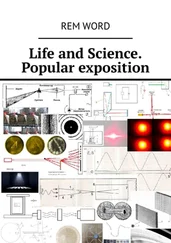The interment took place at Bayside Cemetery nearby in Queens, a vast rol ing field of gravestones and monuments as far as the eye could see. Lucil e’s father had built a mausoleum there, a stone hut like a smal bomb shelter.
Midway through the ceremony Rabbi Cahn asked Richard, as eldest son, to say the Kaddish with him. Joan watched in anguish as her brother’s face froze. He wanted no part of a mourners’ prayer in praise of God.
He told the rabbi he did not understand the Hebrew.
Cahn merely switched to English. Richard listened to the words and refused to repeat them. He did not believe in
God; he knew that his father had not believed in God; and the hypocrisy seemed unbearable. His disbelief had nothing of indifference in it. It was a determined, cool y rational disbelief, a conviction that the myths of religion cheated knowledge. He stood there surrounded by stone and grass near the undersized sepulchral vaults, assembled one atop another, that held the bones of his grandparents. One shelf, too, held the remains of his infant brother, Henry, memorialized now for twenty-two years after his life of one month. On Feynman’s face was a look of tension and determination and also, it seemed to Joan at that moment, utter isolation. Leaving his father’s coffin, he exploded in a rage. Their mother broke down and wept.
At Cornel the next week he seemed unchanged. Just as at Los Alamos—it had been barely a year before—if he grieved, he showed no one. He was proudly rational as ever—“realistic,” he told himself. Classes began. Cornel ’s 1946 fal -term enrol ment was its largest ever, nearly double prewar levels. Feynman was already a draw for young physicists, and he lectured with absolute confidence. Then, a few nights into the term—it was October 17—he took a pen and paper, let realism slip away, and wrote one last letter to the only person who could help him now: D’Arline,
I adore you, sweetheart.
I know how much you like to hear that—but I don’t only write it because you like it—I write it because it makes me warm al over inside to write it to you.
It is such a terribly long time since I last wrote to you
—almost two years but I know you’l excuse me because you understand how I am, stubborn and realistic; & I thought there was no sense to writing.
But now I know my darling wife that it is right to do what I have delayed in doing, and that I have done so much in the past. I want to tel you I love you. I want to love you. I always wil love you.
I find it hard to understand in my mind what it means to love you after you are dead—but I stil want to comfort and take care of you—and I want you to love me and care for me. I want to have problems to discuss with you—I want to do little projects with you. I never thought until just now that we can do that together. What should we do. We started to learn to make clothes together—or learn Chinese—or getting a movie projector. Can’t I do something now. No. I am alone without you and you were the “idea-woman” and general instigator of al our wild adventures.
When you were sick you worried because you could not give me something that you wanted to & thought I needed. You needn’t have worried. Just as I told you then there was no real need because I loved you in so many ways so much. And now it is clearly even more true—you can give me nothing now yet I love you so that you stand in my way of loving anyone else—but I want you to stand there. You, dead, are so much better than anyone else alive.
I know you wil assure me that I am foolish & that you
want me to have ful happiness & don’t want to be in my way. I’l bet you are suprised that I don’t even have a girl friend (except you, sweetheart) after two years.
But you can’t help it, darling, nor can I—I don’t understand it, for I have met many girls & very nice ones and I don’t want to remain alone—but in two or three meetings they al seem ashes. You only are left to me. You are real.
My darling wife, I do adore you.
I love my wife. My wife is dead.
Rich.
PS. Please excuse my not mailing this—but I don’t know your new address.
That he had written such a letter to the woman he loved, two years after her death, could never become part of the iconography of Feynman, the col ection of stories and images that was already beginning to fol ow him about. The letter went into an envelope, the envelope into a box. It was not read again until after his death. Nor did Feynman speak of his graveside outburst at the burial of his father, even to friends, although they would have recognized at least one of its potential morals, his unwil ingness to submit to hypocrisy. The Feynman who could be wracked by strong emotion, the man stung by shyness, insecurity, anger, worry, or grief—no one got close enough any more to see him. His friends heard a certain kind of story instead, in which Feynman was an inadvertent boy hero, mastering a bureaucracy or a person or a situation by virtue of his
naïveté, his good humor, his brashness, his commonsense cleverness (not bril iance), and his emperor’s-new-clothes honesty. The stories were true, at least in spirit, though like al stories they were selectively incomplete. They were admired, polished, retold, and once in a while even relived.
Many of his friends at Los Alamos had already heard variations of a draft-examination story, in which he needled an army examiner who asked him to hold out his hands.
Feynman held them out: one palm up, the other palm down.
The examiner asked him to turn them over, and he did, providing a wise-guy lesson in symmetry: one palm down, the other palm up. Shortly after his first year at Cornel , Feynman got a chance to refine the story. The army was stil drafting, and his educational deferments had run their course. The Selective Service scheduled a new physical examination. Feynman’s version of the story, told countless times in the decades that fol owed, varied from the half serious to the strictly comic. The basic form went like this: Stripped to his underwear, he goes from booth to booth, until—“Final y, we get to Booth No. 13, Psychiatrist.”
Witch doctor. Baloney. Faker. Feynman held an extreme view of psychiatry. His mind was his bailiwick, and he liked to think himself in control. Sensitive psychiatrists might have noted his tendency to deny the occasional roiling undercurrents; the undercurrents and the denial were their bailiwick. He preferred to stress the unscientific hocus-pocus of their enterprise (conveniently shifting terminology, lack of reproducible experiments), as reflected in a movie he had seen recently, Alfred Hitchcock’s Spellbound , in
which “a woman” (Ingrid Bergman), “her hand is stuck and she can’t play the piano … she used to be a great pianist…
.” Certainly he never considered whether he (himself at that moment unable to work) might have had any but the most rational of reasons for feeling: “It’s boring as hel … .” The woman ducks off-screen with her psychiatrist, comes back, sits down at the piano, and plays. “Wel , this kind of baloney, you know, I can’t stand it. I’m very anti. Okay?”
Apart from everything else, psychiatrists are doctors, and Feynman has his reasons for holding doctors in contempt.
The psychiatrist looks at his file and says with a smile, Hello, Dick! Where do you work? (“Wel , what the hel is he cal ing me Dick for? You know, he don’t know me that wel .”)
Feynman says coldly, Schenectady. (This is temporarily true. He and Bethe are supplementing their Cornel salaries by working that summer at General Electric.) Where at Schenectady, Dick?
Feynman tel s him.
You like your work, Dick? “I couldn’t like him less, you know? Like a guy bothering you in a bar.”
Читать дальше












